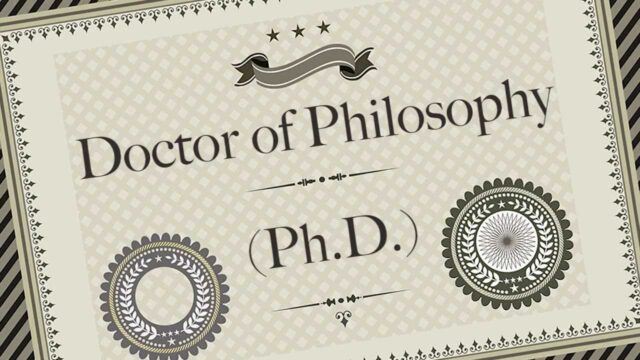
While working to attain high education you probably thought that was the hard part. But, once you have your degree, things get complicated. Of course, you want to cash in on your hard work. We’re not talking about the money, despite the term we used. No, it’s about putting your diploma and knowledge to work in a field you love. To tell you the truth not many people have this luxury. Even rarer are those who got this the easy way. Nothing is easy regardless of your education.
So, by now you must be wondering how to apply and land your first academic job? This is not an easy path. Of course, it’s not Tom Cruise, Mission Impossible is hard to do it. If you’re focused on what we just said, you know that Tom or better say, Ethan Hunt finishes the job every time. So, if he can do it, so can you. Of course, your life isn’t a film, but your knowledge and expertise probably surpass what a Hollywood superstar learned throughout his life.
As we said, it’s only fair for you to take advantage of it. But, when you have your degree, after passing numerous tests and exams, you’re hunting for a different fish. Passing an exam is one thing, but getting to work in the field of your desire is something else.
Searching for a job needs to start even before you have a degree in your hands. Does this surprise you? It shouldn’t. Let us tell you how it all starts.
Publish Your Work

If your goal is to get an academic job, you need to know one thing – your resume speaks for you. Even before you get a Ph.D. you need to write papers and cover many subjects in your field of work. What this means is that by the time of your job hunt you’ll already have a body of work. But, writing, and using your written papers to get grades is not enough. No! Publishing needs to be the end goal. You’re only as good as the papers you publish is the unwritten rule in the academic circles. What you need is a record to show when you talk about your work.
This might look ridiculous when you read it, but your work must hold enough quality that it was published by an editorial. You start from the assistant professor position when you want to work as an academic, and you’ll be examined by your elderly in the profession and probably by the dean. They want to be impressed, and they need to be impressed. Nothing will do this as an array of your published work.
Because of this, it’s important to start publishing while you still hunting for your Ph.D. If you believe that you already have what it takes to land a high-profile job in academic circles you can search for one at hispanicoutlook.com, as they excel in offering jobs in higher education.
Do a Mission Statement

Getting a Ph.D. is not easy. Finding a job where you can help others get one, and work in the field in which you attained your education is even harder. We don’t want to scare anyone, but you need to work even harder after you attain a Ph.D., than you did before.
This is why a mission statement is essential. It’s not only enough to want a job, you need to be able to convince others that you deserve it and that you’re prepared to work hard and long-term which your mission statement will confirm. A mission statement serves to show what are your plans for the future and how you project yourself in the future. It needs to have a precisely defined plan and the decision that will lead you there.
It can revolve around being a full-time professor and tutoring others, or writing a book on a certain thesis. You can expand it as much as you like, but it’s better when a mission statement is streamlined. The best course to take is to have your mission tied to the job you’re chasing.
You could also try and make your mission something that you’ve already done through the college in some capacity, and as such, you can show it as already halfway done.
Get Recommendations

You must have your good name following you. While you’ll get recommendations all the time if you’re doing a good job while chasing the Ph.D., some matter more than others. When you apply for an academic job you’ll probably know the people who will be on the committee which will be examining your applications.
We’re not talking about knowing them personally, but you’ll know who they are, what are their accolades, and who are the people they know. The latter matters the most. It would be best if you had recommendations from the people they know and work or have worked with. If you’re recommended by someone they know and know that they can trust you’re doing good. If your recommendatory person is ready to make a phone call you doing great.
Recommendations matter in any field of work, but in academic circles, they hold a higher weight depending on the person who made them. This is something to take care of early on in your career by doing great work and making an impression on the people you encounter.
Your Degree Matters Too

You could say that we’re not discovering hot water with this statement, and we’re not. But, the school you went to matters. It is quite essential for your future. This is also knowledge as old as the academic studies themselves. When you’re trying to get a job at a certain department they’ll first look at which college you went to. Yes, Harvard University, Columbia University, Brown University, and the rest of the Ivy league are premium schools.
If you’re reading this article you probably aren’t a student or have and Ph.D. from any of these schools. But, regardless of your college, there’s one thing you can always do, and that’s to have great grades. This is a statement everywhere regardless of where you’re coming from. But, having a quality school behind yourself and great grades is what can land you almost any job.









